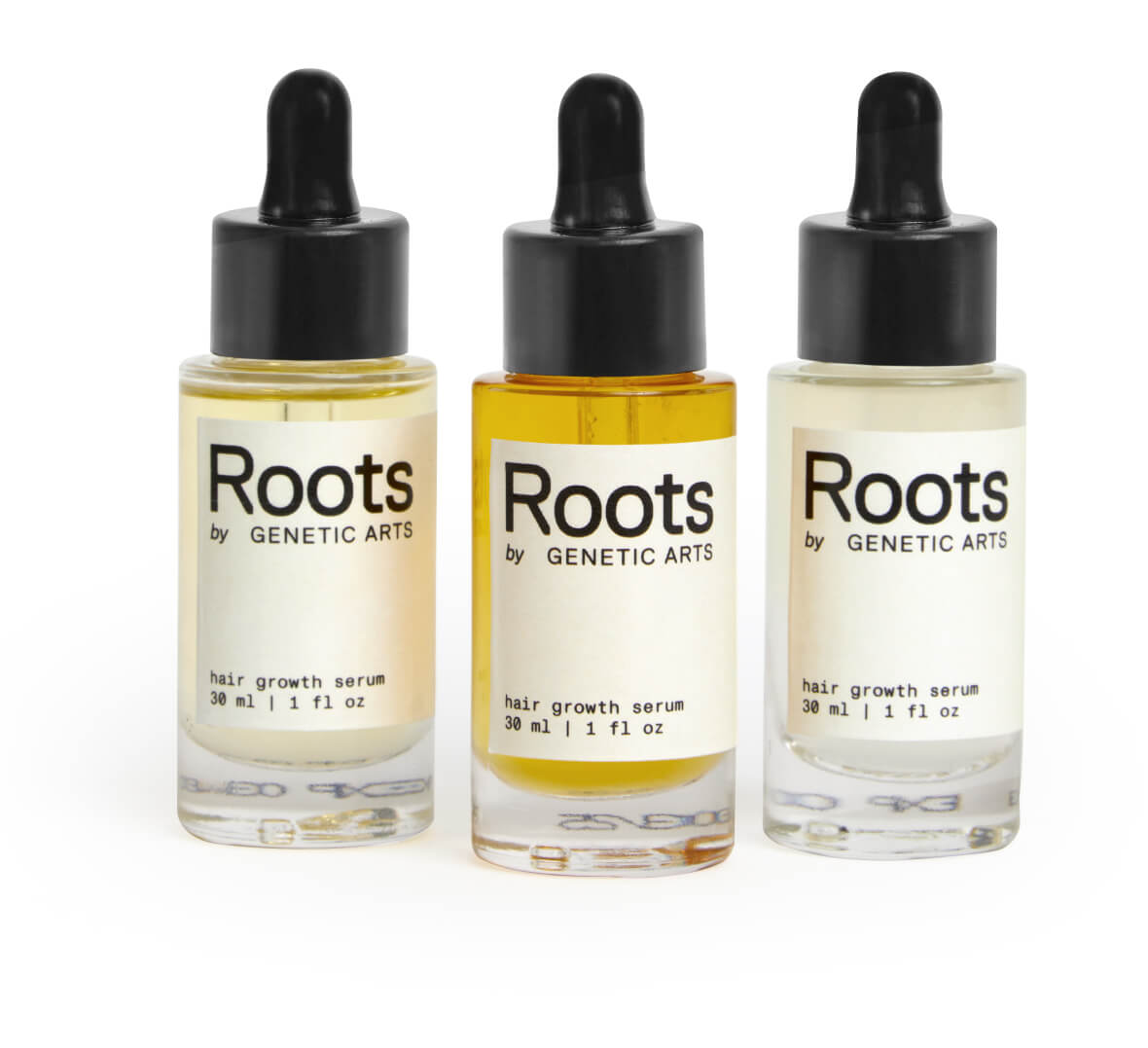The Science Behind Roots by GA
Roots by Genetic Arts pharmacogenetic test is provided by our partner lab. It was built on years of research. Developed by a team of experts merging the fields of genetics, nutrition, pharmaceuticals, the hair loss treatment test is based on state-of-the-art DNA microarray technology that allows us to deliver custom treatments to your door.
